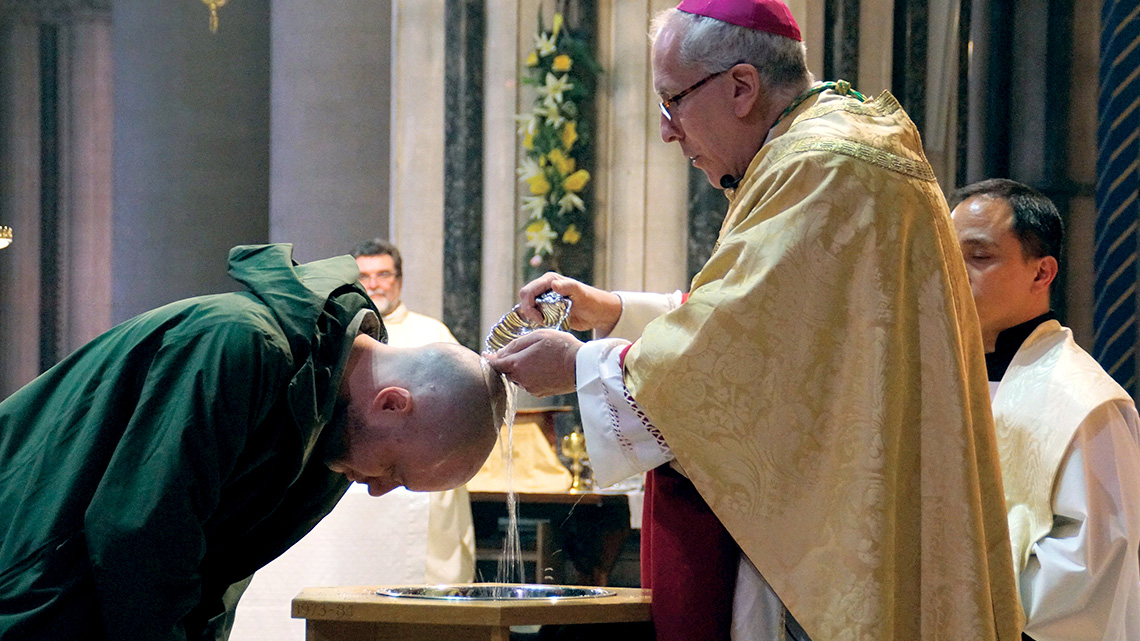
With a background of an increasingly secular society, why do some adults still decide to join the Catholic Church? A new report by the Diocese of East Anglia Commission for the New Evangelisation throws some light on the matter.
This report is by its Lead Researcher, Philip Kemp.
Most people will be aware of declining attendance at regular religious services and increasing numbers of those who do not identify with any religious faith in an increasingly secular society. Yet there are many adults who do choose to join the Catholic Church.
The Diocese of East Anglia Commission for the New Evangelisation recently carried out a research study to explore why adults decided to become Catholics and whether there are any lessons for evangelisation. Ten individuals (five male and five female) from across a broad range of parishes were interviewed in depth and the interviews were then systematically analysed to identify common themes which appeared to inform participants’ journeys into the Catholic Church.
There were six key interrelated themes identified. Interviewees experienced a spiritual restlessness, including already committed Christians in another denomination. It was accompanied by a deliberate quest for this to be resolved and was often a very protracted process over a number of years.
Their quest was intellectually driven. Participants were highly proactive in their quest to find a spiritual home and in the process acquired impressive knowledge about Catholicism. They drew heavily on YouTube channel speakers for their spiritual formation.
Intellectual rationales were insufficient on their own. Intellectual drivers interacted with affective experiences. At various points in the process to become a Catholic, participants experienced particular moments of being profoundly moved in a deep spiritual sense, for example, through Holy Mass or Adoration services, which acted as catalysts.
Participants’ gravitation towards the Catholic Church followed an incremental process whereby serial illuminations provided heightened appreciation of Catholic beliefs and practices. This often involved de-mystification of pre-existing prejudices or misunderstandings.
The discovery of reverence in Catholic practices was a central illuminating experience which had a profound impact, including among those who had previously been committed Christians from a non-Catholic denomination.
The journey to the Catholic Church was largely a self-initiated process. However, having eventually decided to become a Catholic, key end-stage facilitators, often but not exclusively a parish priest, played a crucial role in drawing individuals in and facilitating the sacramental steps for formal entry to the Church.
One interviewee said:
“Everything I was hearing made sense. I was listening to lots of testimonies…. It was just beginning to build up and I just, I still had, lots of questions. I still was not sure about Mary, purgatory, or praying to the saints, things like that. But I was growing but I couldn’t stop, I just couldn’t stop listening and reading and at the same time I felt drawn to the Catholic Church.”
Analysis of the interviews in this study suggests that the process for an adult deciding to become a Catholic is a largely self-initiated, protracted, complex and multi-dimensional. There were no sudden conversions.
Similarly, there was no single decision nor single event that provided overwhelming grounds for joining the Catholic Church. Rather there appears to be an incremental process of increasing understanding and insights, a series of spiritually rich experiences, and timely significant relationship encounters. All of these factors have a cumulative effect over an extended period of time. These findings indicate a number of areas of consideration and challenge which might help inform evangelisation strategies and practices.
The Right Reverend Peter Collins, Bishop of East Anglia, baptises a new Catholic at the Easter Vigil at St John’s Cathedral in Norwich. Used with permission.